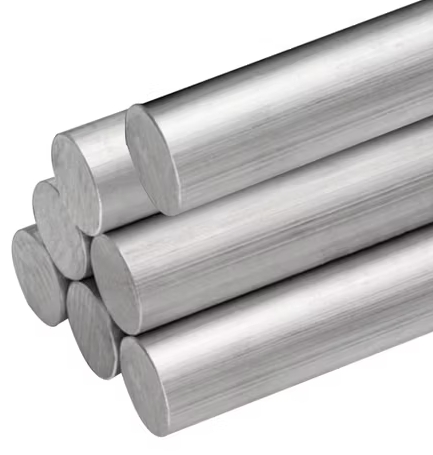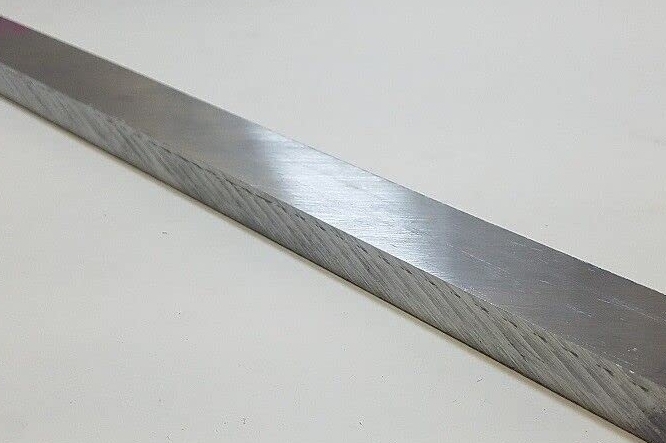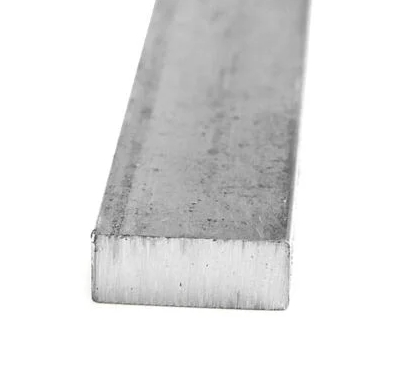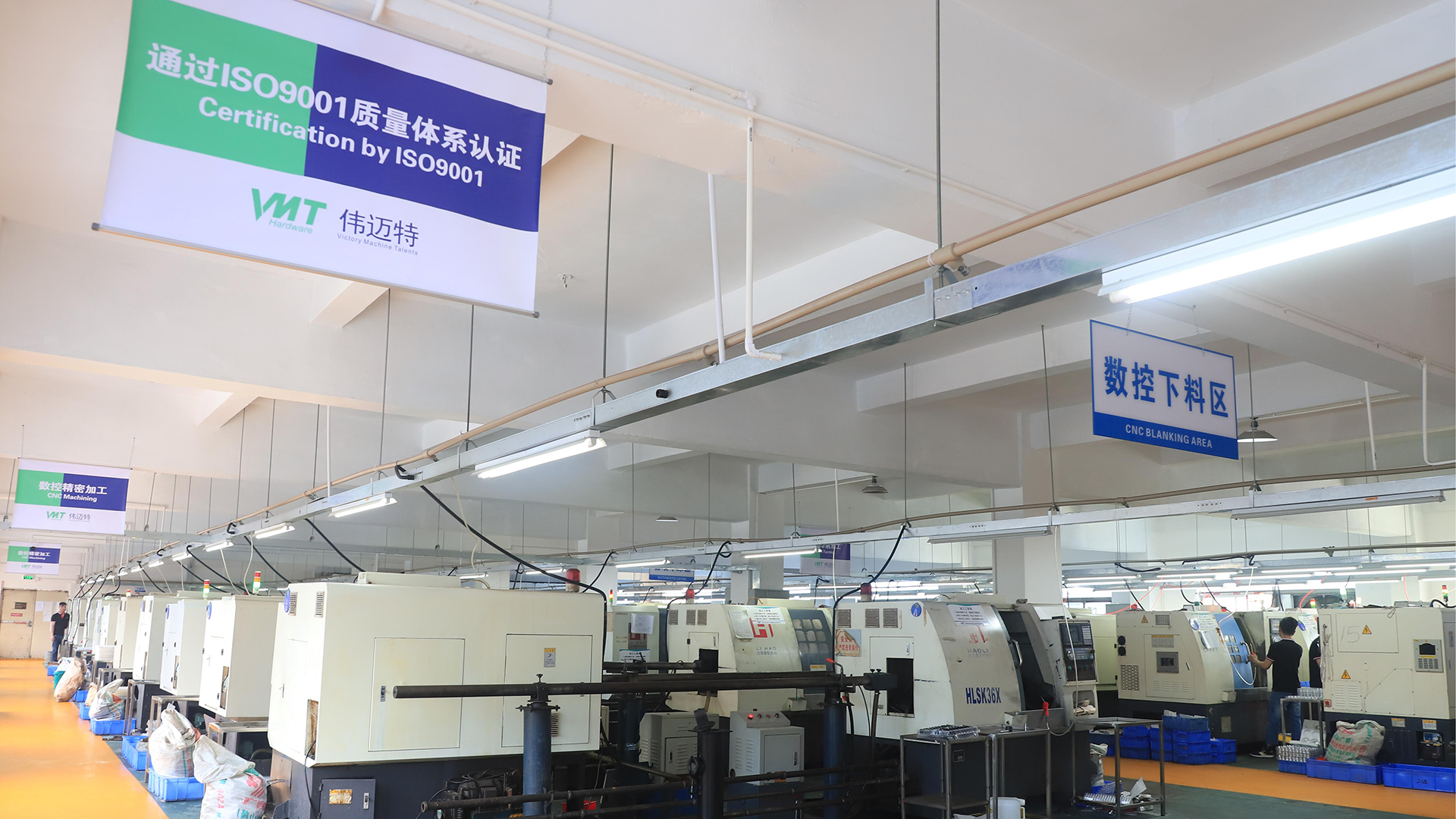7075 Billet Aluminum vs 4140 Steel: A Difference Guide
When choosing materials for CNC machining, you may ask yourself which option is best for your project. This guide compares 7075 billet aluminum and 4140 steel, both widely used in industries such as automotive, aerospace, and industrial manufacturing. We will explore their differences to help you make a well-informed decision.
Choose 4140 steel for strength and durability in tough tasks, or 7075 billet aluminum for lightweight projects. Note that billet aluminum, even high-strength 7075, typically doesn’t match forged steel’s strength. Choosing between 7075 billet aluminum vs 4140 steel depends on your needs for weight, strength, and corrosion resistance.
Now, let’s take a closer look at the key features of 7075 billet aluminum and 4140 steel to understand their differences and distinctions.
What is 7075 Billet Aluminum?
7075 billet aluminum is one of the most widely used high-strength aluminum alloys. Known for its excellent mechanical properties, it is a preferred material in industries where strength-to-weight ratios are crucial. It is often used in aerospace, military, and high-performance automotive applications due to its outstanding durability and resistance to stress.

Made from aluminum alloy with zinc as the primary alloying element, 7075 aluminum offers superior strength compared to many other aluminum alloys. It is also known for its excellent fatigue resistance, making it ideal for structural components.
The Mechanical Properties of 7075 Aluminum
7075 aluminum alloy is well-known for its excellent mechanical performance, making it suitable for demanding applications in aerospace, automotive, and industrial manufacturing. Among its key properties, tensile strength and yield strength are particularly important, as they determine the material’s ability to withstand stress and deformation. The following is its main mechanical properties:
| Property | Value | Notes |
|---|---|---|
| Tensile Strength | Up to 572 MPa | High strength suitable for structural applications |
| Yield Strength | 455–465 MPa | Varies depending on temper condition |
| Material Type | 7075 Aluminum Alloy | Commonly used in aerospace, automotive, and industrial applications |
Is Billet Aluminum Strong?
Yes, billet aluminum is strong, particularly 7075 aluminum, which is one of the strongest grades available in aluminum alloys. 7075 billet aluminum is known for its high strength and can withstand significant stress. However, it is important to note that while it is strong, it does not match the tensile strength of steel.
Is 7075 Aluminum as Strong as Steel?
While 7075 aluminum is exceptionally strong for an aluminum alloy, it is still not as strong as 4140 steel. Steel 4140 offers superior tensile strength and is more durable under high-stress conditions. However, 7075 aluminum has the advantage of being much lighter, which makes it a better choice when weight is a consideration.
What is 4140 Steel?
4140 steel, a chromium-molybdenum alloy, is a versatile, heat-treated steel that is commonly used for manufacturing high-stress parts. With its excellent toughness, wear resistance, and fatigue strength, it is a popular choice in automotive, manufacturing, and industrial sectors. 4140 steel hardness Rockwell can vary depending on its heat treatment, but it generally falls in the Rockwell hardness scale of 28 to 32 HRC.
This material is particularly well-suited for parts like gears, crankshafts, and structural components that require high tensile strength and fatigue resistance.

Different Types of Steel
Steel is one of the most versatile materials used in manufacturing, with various types designed to meet specific performance requirements. Each steel type has unique properties based on its composition and treatment processes, making it suitable for different applications.
| Steel Type | Composition | Properties | Common Applications |
|---|---|---|---|
| 4140 Steel | Chromium-Molybdenum | High tensile strength, wear resistance | Gears, crankshafts, industrial machinery |
| 304 Stainless Steel | Chromium-Nickel | Corrosion resistance, easy to weld | Kitchen equipment, medical devices |
| Carbon Steel | Iron, Carbon | Affordable, easy to machine | Construction, automotive parts |
| Tool Steel | Various alloys | Wear resistance, hardness | Cutting tools, dies |
| Alloy Steel | Various elements | High strength, impact resistance | Structural applications, heavy machinery |
What is 4140 Steel Used For?
4140 steel is used in a variety of high-stress applications where toughness, strength, and resistance to fatigue are critical. It is commonly used for making gears, shafts, axles, and other heavy-duty components in the automotive and industrial sectors. It’s also widely used in oil and gas drilling equipment, military applications, and heavy machinery.
The Mechanical Properties of 4140 Steel
4140 steel is widely used in CNC machining due to its excellent mechanical properties, which provide high strength, toughness, and wear resistance. These characteristics make it ideal for demanding applications in automotive, aerospace, and industrial manufacturing. The following is the key mechanical properties of 4140 steel:
| Property | Value | Notes |
|---|---|---|
| Tensile Strength | 655–860 MPa | Strong and durable for structural components |
| Yield Strength | 415–655 MPa | Depends on heat treatment and temper |
| Hardness | 197–241 HB | Can be further increased through quenching and tempering |
| Material Type | 4140 Alloy Steel | Commonly used for shafts, gears, and high-stress components |
Chemical Composition: 7075 Billet Aluminum vs 4140 Steel
The chemical composition of a material plays a crucial role in determining its properties, such as strength, corrosion resistance, and machinability. Here’s a closer look at the chemical makeup of 7075 aluminum alloy and 4140 steel, two materials commonly used in CNC machining and other high-performance applications.
- 7075 aluminum alloy contains approximately 5.1-6.1% zinc, 2.1-2.9% magnesium, with smaller amounts of copper, chromium, and other elements. This specific composition gives 7075 aluminum its high strength-to-weight ratio and corrosion resistance, making it ideal for aerospace and military applications.
- 4140 steel is made up of 0.38-0.43% carbon, 0.90-1.20% chromium, and 0.15-0.25% molybdenum, with other elements to improve its wear resistance and toughness. These alloying elements enhance the steel’s performance in heavy-duty industrial applications where high strength and wear resistance are required.
Mechanical Properties: 7075 Billet Aluminum vs 4140 Steel
The mechanical properties of a material directly affect its performance in various applications. 4140 steel outperforms 7075 aluminum in terms of tensile strength and yield strength, making it the better choice for high-stress applications where superior load-bearing capacity and resistance to permanent deformation are required. While 7075 aluminum has a lower elongation (ductility), it excels in providing a higher strength-to-weight ratio and greater stiffness. On the other hand, 4140 steel is harder and more wear-resistant, making it ideal for environments with high abrasion or mechanical wear. Below is a comparison of the mechanical properties of 7075 billet aluminum and 4140 steel:
| Property | 7075 Billet Aluminum | 4140 Steel |
|---|---|---|
| Tensile Strength | 570 MPa | 850-1000 MPa |
| Yield Strength | 505 MPa | 655 MPa |
| Elongation | 11% | 20% |
| Hardness (Rockwell) | 150 HB | 28-32 HRC |
Thermal Properties: 7075 Billet Aluminum vs 4140 Steel
Thermal properties play a crucial role in determining how materials perform under varying temperature conditions, especially in applications where heat management is vital. Here’s how 7075 aluminum and 4140 steel compare in terms of thermal properties:
- 7075 aluminum boasts higher thermal conductivity (around 130 W/m·K), making it highly efficient at dissipating heat. This characteristic is particularly advantageous in industries like aerospace and automotive, where managing heat is essential for preventing material failure and ensuring optimal performance in high-temperature environments.
- 4140 steel, with its lower thermal conductivity (around 45 W/m·K), is not as effective at transferring heat but has the advantage of offering better resistance to thermal wear. This makes 4140 steel a better choice for high-temperature applications where structural integrity must be maintained, such as in heavy-duty industrial machinery and tools that experience intense heat without compromising their strength and durability.
Electrical Properties: 7075 Billet Aluminum vs 4140 Steel
Electrical conductivity is a key factor when selecting materials for electrical and electronic applications. Here’s how 7075 aluminum and 4140 steel differ in their electrical properties:
- 7075 aluminum is known for its excellent electrical conductivity, which makes it an ideal material for electrical and electronic components such as connectors, heat exchangers, and conductive parts. Its high conductivity allows for efficient current flow, making it especially beneficial in industries where electrical performance is crucial.
- In contrast, 4140 steel has lower electrical conductivity, making it unsuitable for electrical applications. Instead, 4140 steel is typically used in non-electrical applications, particularly in structural and mechanical components where electrical performance is not a primary concern. The steel’s strength and durability make it ideal for high-stress, heavy-duty applications rather than those requiring electrical conductivity.

Price: 7075 Billet Aluminum vs 4140 Steel
When considering cost-effectiveness, 7075 aluminum is generally more expensive due to its advanced alloying process and high-performance capabilities, offering enhanced strength and corrosion resistance for demanding applications like aerospace and military. These benefits come at a premium, making it a costly choice.
In contrast, 4140 steel is more affordable while still providing strong performance, durability, and wear resistance. This makes it a preferred option for heavy-duty applications in industries such as construction, automotive, and industrial machinery, where cost efficiency is crucial but strength and toughness remain important.
Table for Summarizing 7075 Billet Aluminum vs 4140 Steel
To make the comparison between 7075 billet aluminum and 4140 steel clearer, we’ve summarized their key properties in the following table. These properties include strength, density, thermal conductivity, and more, which are important factors to consider when choosing the right material for your project. By reviewing this table, you can easily see how these two materials differ in performance and suitability for various applications, helping you make an informed decision based on your specific requirements.
| Feature | 7075 Billet Aluminum | 4140 Steel |
|---|---|---|
| Tensile Strength | 570 MPa | 850-1000 MPa |
| Yield Strength | 505 MPa | 655 MPa |
| Elongation | 11% | 20% |
| Shear Strength | 300-450 MPa | 550 MPa |
| Hardness (Brinell) | 150 HB | 28-32 HRC |
| Fatigue Strength | 135 MPa | 400 MPa |
| Density | 2.81 g/cm³ | 7.85 g/cm³ |
| Melting Point | 477°C | 1425°C |
| Thermal Expansion Coefficient | 22.5 x 10⁻⁶ /°C | 11.8 x 10⁻⁶ /°C |
| Thermal Conductivity | 130 W/m·K | 45 W/m·K |
| Specific Heat Capacity | 0.897 J/g·°C | 0.46 J/g·°C |
| Electrical Conductivity | 35% IACS (high) | 6% IACS (low) |
| Electrical Resistivity | 0.0000000296 Ω·m | 0.00000008 Ω·m |
| Magnetic Permeability | Non-magnetic | Magnetic |
Applications of 7075 Aluminum and 4140 Steel
Both 7075 aluminum and 4140 steel have specific applications where their unique properties make them stand out:
7075 Aluminum:
- Aerospace: Used for aircraft structural parts, landing gear components, and fuselage frames due to its excellent strength-to-weight ratio and corrosion resistance.
- Automotive: Ideal for lightweight components like wheels, suspension parts, and engine components, providing both strength and weight savings.
- Military: Commonly used in weapon systems, military vehicles, and high-performance parts where strength and corrosion resistance are critical.
- Marine: Ideal for boat hulls and other components exposed to saltwater environments due to its superior corrosion resistance.
4140 Steel:
- Industrial Machinery: Frequently used for high-strength, wear-resistant components such as gears, shafts, axles, and machine parts that experience heavy load and mechanical stress.
- Automotive: Used for components such as crankshafts, axles, and heavy-duty gears where superior tensile strength and durability are required.
- Construction: Common in structural steel applications, including beams and supports, where strength and toughness are critical.
- Oil and Gas: Utilized in drilling equipment, valves, and other heavy-duty machinery that must endure extreme stress and abrasive conditions.
Which Material Should You Choose for Your Project?
When deciding between 7075 billet aluminum and 4140 steel, consider the specific needs of your project. Choose 7075 aluminum if you require a lightweight, corrosion-resistant material with excellent strength-to-weight ratio for applications in aerospace, automotive, or military industries, where performance and weight reduction are critical.
If your project demands higher tensile strength, wear resistance, and durability under heavy stress, 4140 steel is the better option. It is ideal for heavy-duty applications such as machinery parts, automotive components, and construction equipment, where strength, toughness, and resistance to abrasion are key. Your material choice will depend on the balance of weight, strength, corrosion resistance, and cost that best suits your project’s requirements.
Start your CNC Machining Project at VMT
To start your CNC machining project, VMT is your ideal choice. We are equipped with 66 advanced 3, 4, and 5-axis CNC machines, 30 CNC lathes, and 20 automatic lathes to meet various complex machining needs. We always have the materials we need for daily use, and all materials are selected from high-quality models on the market, with third-party inspection reports to ensure quality. In particular, we provide common materials such as 7075 aluminum billets and 4140 steel, and we also accept processing needs for other materials. Contact us now to get a free CNC machining quote!

In Conclusion
7075 billet aluminum and 4140 steel offer distinct advantages, making them suitable for different applications. 7075 aluminum is ideal for projects that require a lightweight, corrosion-resistant material with high strength, particularly in industries like aerospace, automotive, and military. 4140 steel is valued for its superior tensile strength, wear resistance, and durability, making it the go-to choice for heavy-duty applications such as industrial machinery and structural components.
Related Blogs
Frequently Asked Questions
How Heavy Is Stainless Steel?
The weight of stainless steel depends on its specific composition, but generally, stainless steel weighs around 0.29 pounds per cubic inch (7.9 g/cm³).
How Much Does a Cubic Inch of Steel Weigh?
A cubic inch of steel weighs approximately 0.283 pounds (7.85 g), but this can vary slightly depending on the specific type of steel.
How Much Does a Steel Plate Weigh?
The weight of a steel plate depends on its dimensions and thickness. For example, a 1-inch thick, 12″ x 12″ steel plate weighs around 24 pounds (10.88 kg). To calculate the weight, multiply the volume by the steel’s density.
How Much Does Aluminum Weigh?
Aluminum weighs about 0.098 pounds per cubic inch (2.7 g/cm³), making it significantly lighter than steel, which is one reason it’s commonly used in lightweight applications.
Does 4140 Steel Rust?
Yes, 4140 steel can rust if it is not properly protected or coated. While 4140 is a chromium-molybdenum alloy known for its strength and toughness, it is still susceptible to corrosion in humid or wet environments unless treated with protective coatings or maintained properly.
What is the Difference Between Billet Aluminum and Regular Aluminum?
Billet aluminum refers to a solid piece of aluminum that is machined from a larger block or billet of metal. It is typically higher quality, more precise, and free from defects. Billet aluminum is used in applications where strength, durability, and precision are important, such as aerospace or high-performance parts.
Regular aluminum can refer to aluminum in any form, including extruded, cast, or rolled aluminum. It may have more variability in material composition and surface quality, and the parts are often formed through processes like casting or extrusion, which can sometimes result in internal defects or lower strength compared to billet aluminum.



